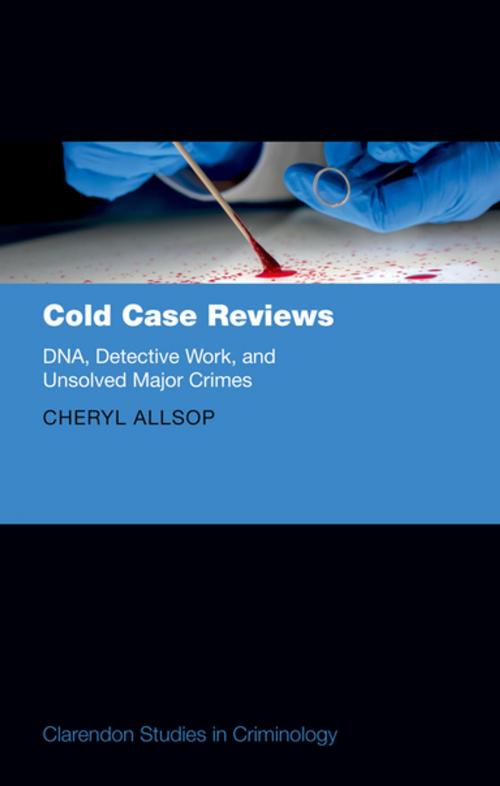Cold Case Reviews
DNA, Detective Work and Unsolved Major Crimes
Nonfiction, Reference & Language, Law, Criminal Procedure, Social & Cultural Studies, Social Science, Crimes & Criminals, Criminology| Author: | Cheryl Allsop | ISBN: | 9780191064678 |
| Publisher: | OUP Oxford | Publication: | February 2, 2018 |
| Imprint: | OUP Oxford | Language: | English |
| Author: | Cheryl Allsop |
| ISBN: | 9780191064678 |
| Publisher: | OUP Oxford |
| Publication: | February 2, 2018 |
| Imprint: | OUP Oxford |
| Language: | English |
This book provides the first ethnographic account of a UK major crime review team, providing a comprehensive, conceptual account of cold case reviews not currently available from an academic criminological perspective. . Cold case reviews are a relatively new and innovative form of policing yet, to date, there has been little empirical research into their conduct in the UK. Addressing this empirical void by shining a light on the practicalities and realities of cold case investigations, the author spent eight months with a major crime review team tasked with conducting 28-day reviews of 'live' unsolved murder and stranger rapes and detecting long term unsolved major crimes. The resulting work contains a unique focus on forensic science and the role of the National DNA Database (NDNAD) in cold case reviews, adding to the current debates about the police use of forensic science, as well as consideration of the growing public concern about historic sexual offences and the criminal justice responses to them, with an exploration of the debates around the implications of investigating these crimes many years later. Presenting the key findings in relation to the opportunities and challenges to successful cold case reviews, the role of forensic science and other forms of expertise in cold case reviews, and the political and moral considerations being made in this regard, the resulting work will be of interest to practitioners tasked with investigating long term unsolved crimes and students and researchers interested in policing and investigations.
This book provides the first ethnographic account of a UK major crime review team, providing a comprehensive, conceptual account of cold case reviews not currently available from an academic criminological perspective. . Cold case reviews are a relatively new and innovative form of policing yet, to date, there has been little empirical research into their conduct in the UK. Addressing this empirical void by shining a light on the practicalities and realities of cold case investigations, the author spent eight months with a major crime review team tasked with conducting 28-day reviews of 'live' unsolved murder and stranger rapes and detecting long term unsolved major crimes. The resulting work contains a unique focus on forensic science and the role of the National DNA Database (NDNAD) in cold case reviews, adding to the current debates about the police use of forensic science, as well as consideration of the growing public concern about historic sexual offences and the criminal justice responses to them, with an exploration of the debates around the implications of investigating these crimes many years later. Presenting the key findings in relation to the opportunities and challenges to successful cold case reviews, the role of forensic science and other forms of expertise in cold case reviews, and the political and moral considerations being made in this regard, the resulting work will be of interest to practitioners tasked with investigating long term unsolved crimes and students and researchers interested in policing and investigations.















